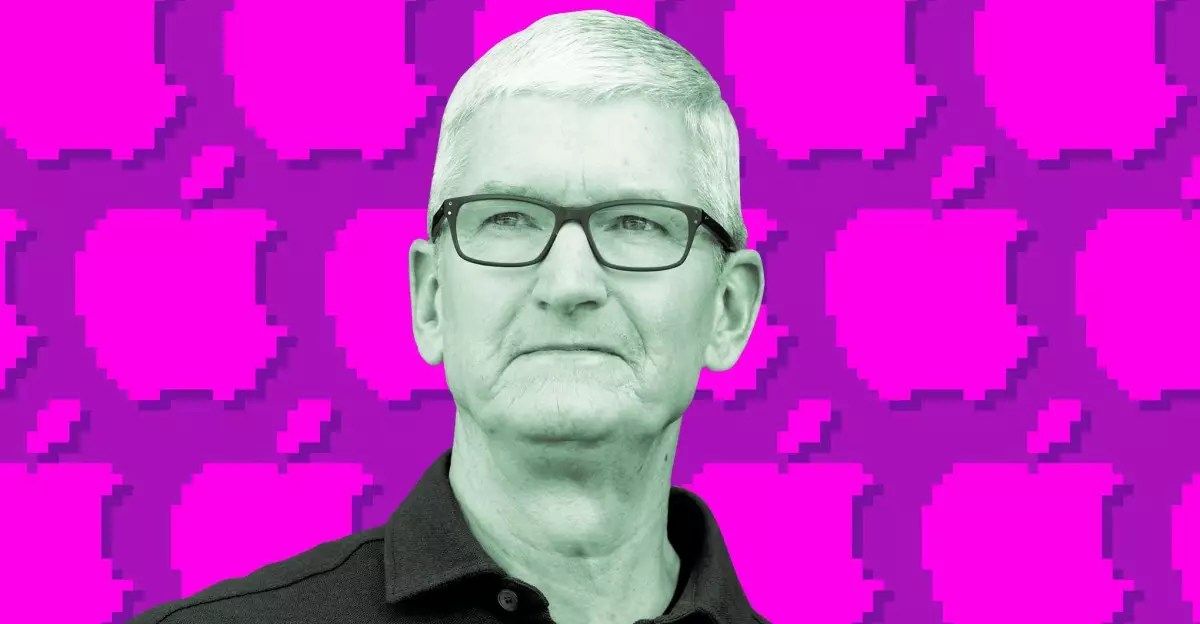In a rare display of transparency and ambition, Apple’s leadership recently communicated a visionary outlook on artificial intelligence, signaling a pivotal shift in the company’s strategic trajectory. CEO Tim Cook’s tone was not just optimistic; it was resolutely confident, framing AI as a frontier comparable in magnitude to the advents of the internet, smartphones, and cloud computing. This declaration reveals a purposeful ambition: Apple recognizes the profound impact AI will have on the future of technology and intends to be at the forefront, despite its previous cautious approach. Historically, Apple has played the role of a late adapter, perfecting and elevating existing ideas rather than pioneering from the ground up. However, Cook’s rhetoric suggests a reassessment—a recognition that AI is not merely a feature set but a strategic imperative that demands bold, early action.
This moment represents a philosophical inflection point. Apple is no longer content with incremental improvements; it seeks to redefine its role in shaping AI’s evolution. The company’s declaration that mastering AI is “ours to grab” underscores a newfound sense of ownership and responsibility. Moreover, the emphasis on investments signals a long-term commitment; Apple is willing to burn through resources, knowing that the AI revolution could redefine its identity and market dominance.
Addressing Internal Challenges: From Delays to Talent Drain
Despite the optimistic tone, the internal landscape is tinged with hurdles. Apple’s prior struggles with deploying AI features—particularly the delayed launch of an AI-enhanced Siri—underline the difficulties of transforming ambitious visions into reality. The company’s initial plan to develop Siri using a hybrid architecture, combining traditional systems with large language models (LLMs), was shelved in favor of a more robust, unified architecture. This pivot highlights a thoughtful approach, acknowledging past limitations while driving toward higher-quality AI integrations. However, the delay has spilled into talent retention. Apple has lost some AI talent to competitors like Meta, which aggressively hires experts in superintelligence. This brain drain signals a critical challenge: in a fiercely competitive AI landscape, being late or cautious can be costly.
The internal struggles reflect a larger philosophical debate: should Apple take a cautious, perfectionist route, or should it embrace a faster, more aggressive timeline? Cook’s unwavering confidence indicates he favors the former, believing that quality and innovation go hand-in-hand. Yet, the company must balance this with the realities of the competitive talent wars and fast-evolving AI technology. The question remains whether Apple can maintain its hallmark standards while accelerating development to stay relevant.
Implications for the Broader Tech Ecosystem
Apple’s renewed focus on AI signals a potential reshaping of the entire technology industry. Its influence extends beyond consumer devices; it can set new standards for privacy, security, and user experience in AI applications. Unlike some competitors, Apple’s core value has been user privacy, and it has the opportunity to lead with AI that respects these principles. If executed well, Apple can merge advanced AI capabilities with its privacy-first philosophy, disrupting existing norms and raising the bar for responsible innovation.
Furthermore, Apple’s bold stance encourages other industry giants to reassess their AI strategies. It signals that cautious progress is no longer acceptable in the face of rapid technological shifts. For consumers, this means new AI-driven features embedded seamlessly into Apple’s ecosystem, possibly transforming our interactions with devices and information in ways we have yet to imagine. However, success depends on overcoming internal technical challenges and the fierce competition for AI talent.
If Apple truly commits to this vision, it might not just catch up but leap ahead, redefining what AI means for everyday users. Conversely, failure to execute effectively could deepen its reputation as a slow adopter, risking its standing as an innovator. The coming years will determine whether Apple’s confidence is justified or whether it remains an aspiration on the cusp of realization.


Leave a Reply